Schizophrenia: A Comprehensive Report on Symptoms, Nursing Management
VerifiedAdded on 2022/09/28
|5
|996
|21
Report
AI Summary
This report provides a comprehensive overview of schizophrenia, a significant mental disorder characterized by disruptions in thinking, language, perception, and self-sense. It begins by defining schizophrenia and discussing its potential causes, including genetic and biochemical factors. The report then outlines the three phases of schizophrenia: prodromal, acute, and recovery, detailing the progression and impact of the illness. Key symptoms are explored, including cognitive impairments such as delusions and memory loss, behavioral issues like hallucinations and aggression, and mood disturbances like anxiety and anger. The report also classifies different types of schizophrenia, such as paranoid, disorganized, and catatonic, based on their distinct symptom profiles. Furthermore, the report focuses on nursing management strategies, emphasizing the importance of medication administration, ensuring patient safety, providing nutritional support, and addressing hallucinations. It also highlights the significance of family involvement, patient education, and the use of community resources like mental health organizations and rehabilitation centers. In conclusion, the report underscores the treatable nature of schizophrenia and the importance of a multifaceted approach involving medication, psychotherapy, and social support to improve patient outcomes.
1 out of 5
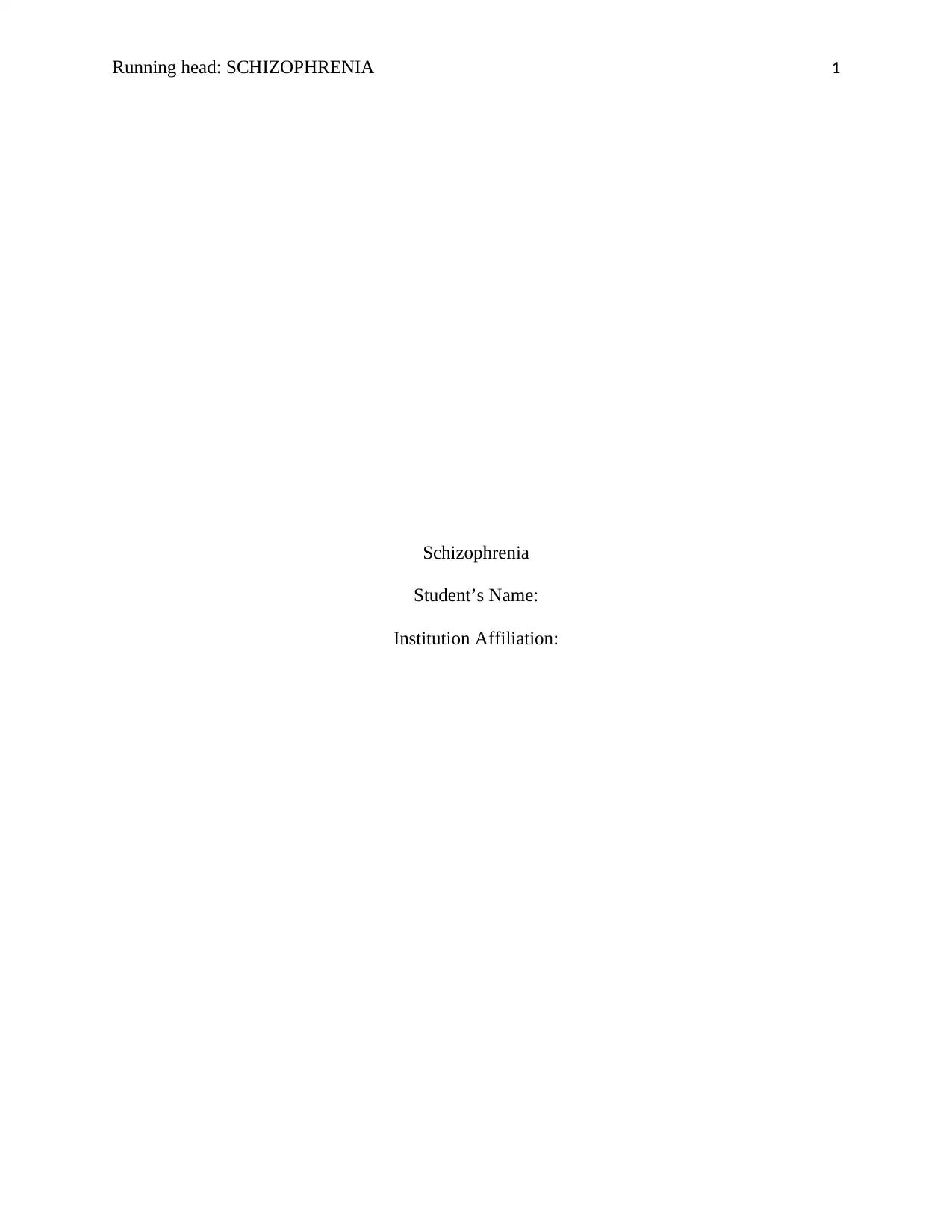
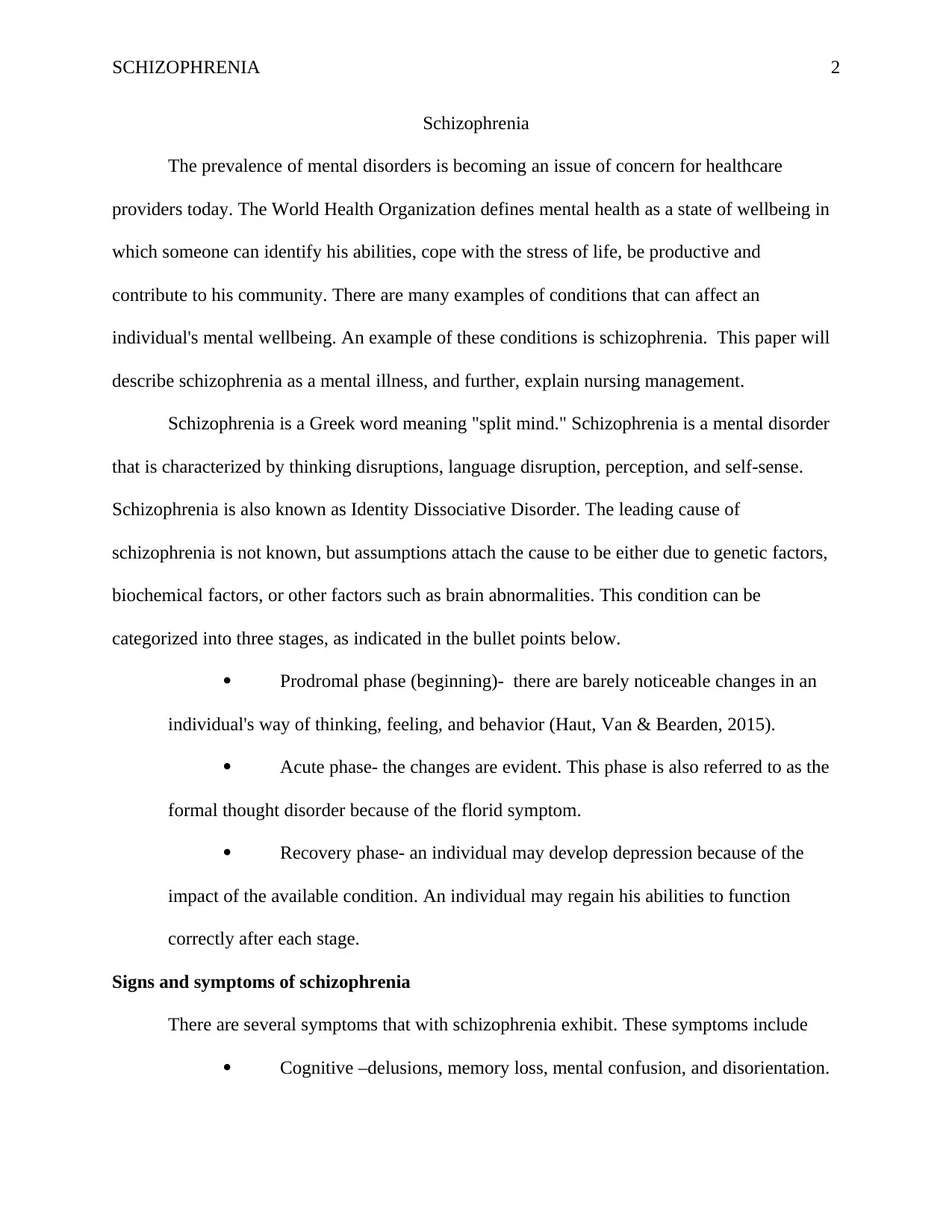
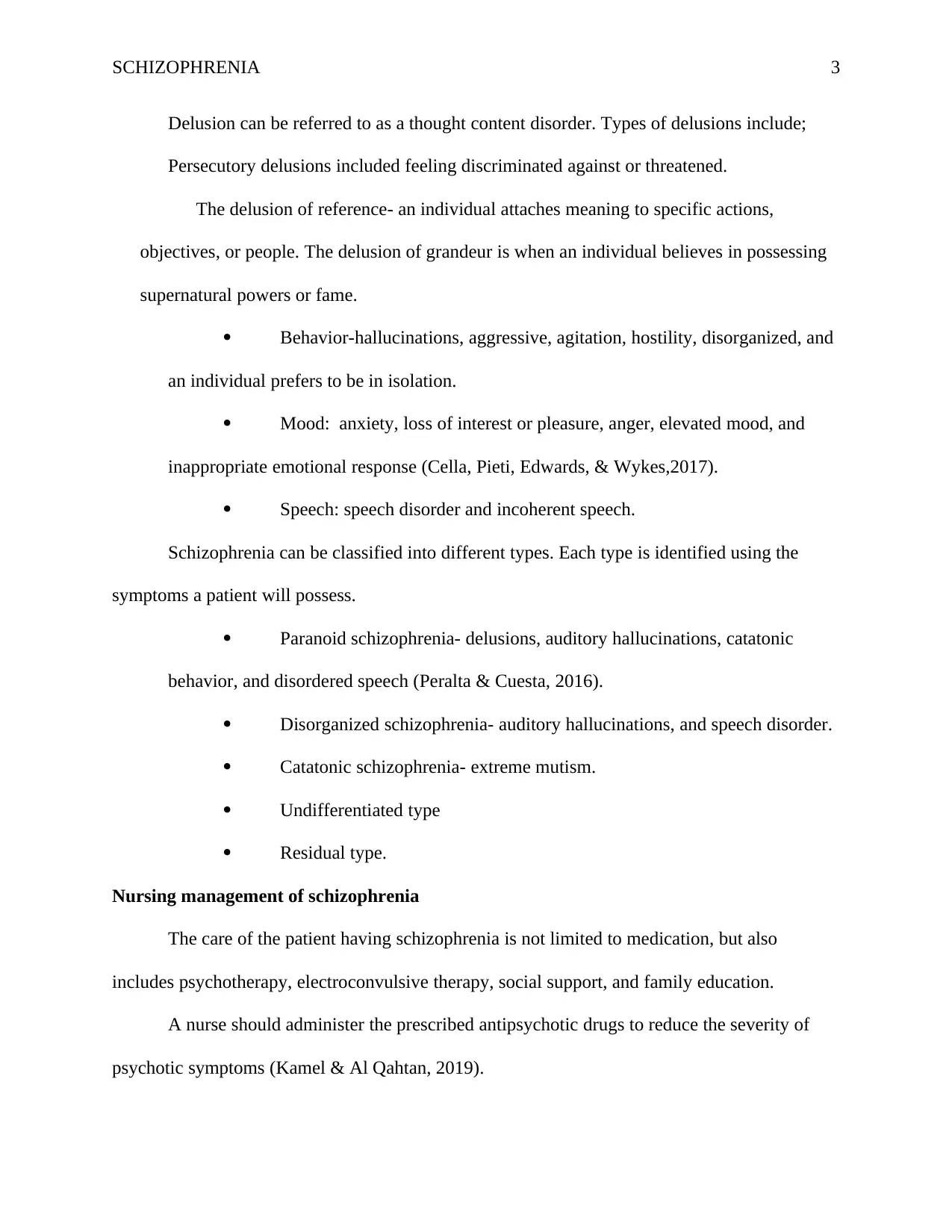

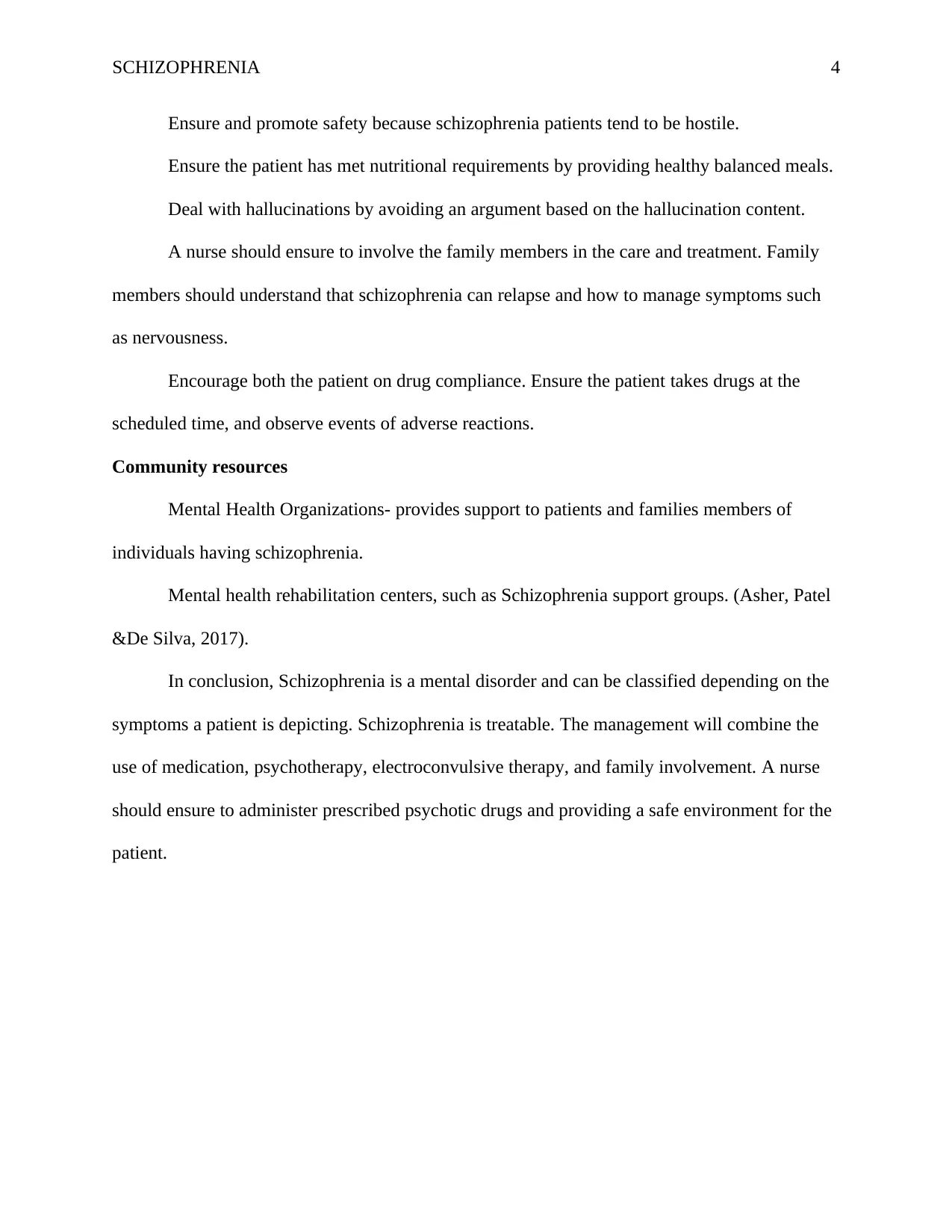
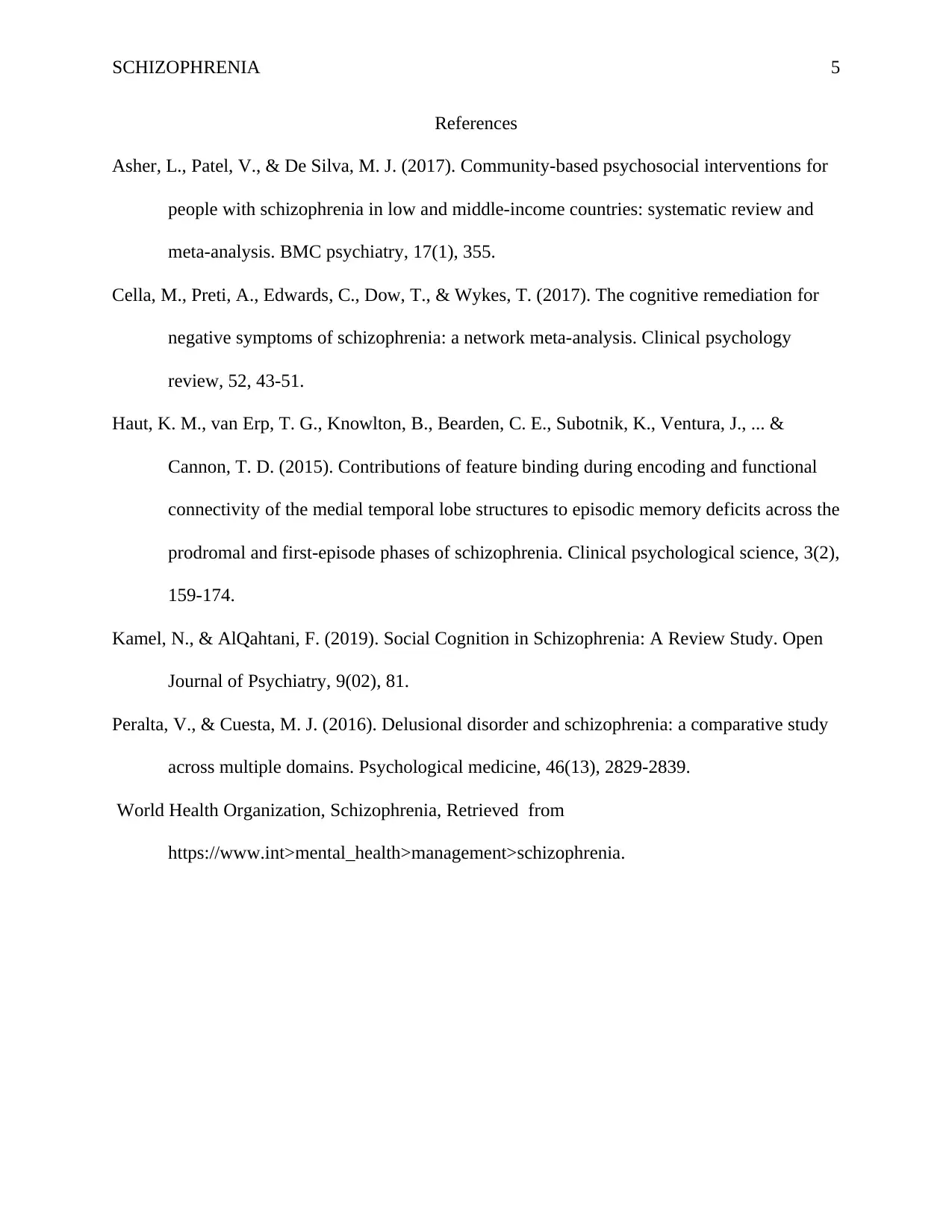






![[object Object]](/_next/static/media/star-bottom.7253800d.svg)